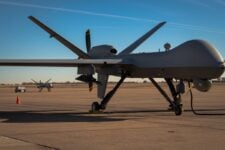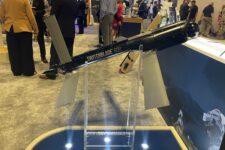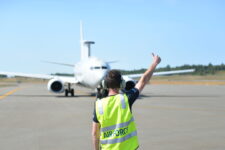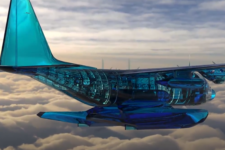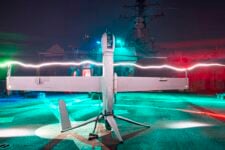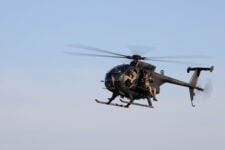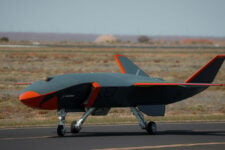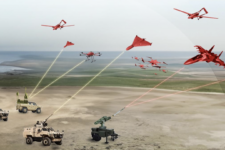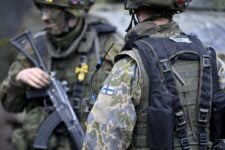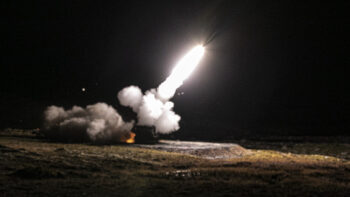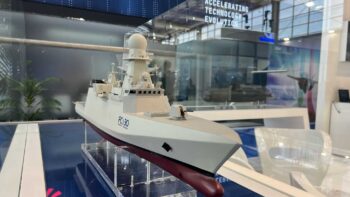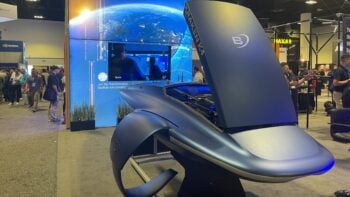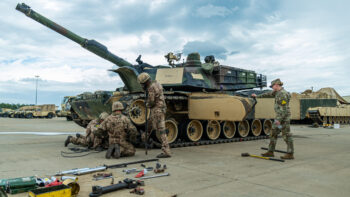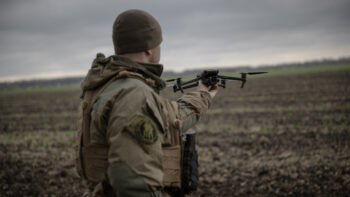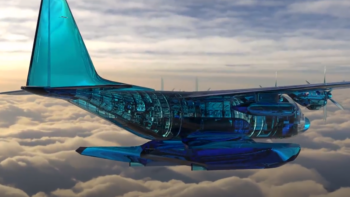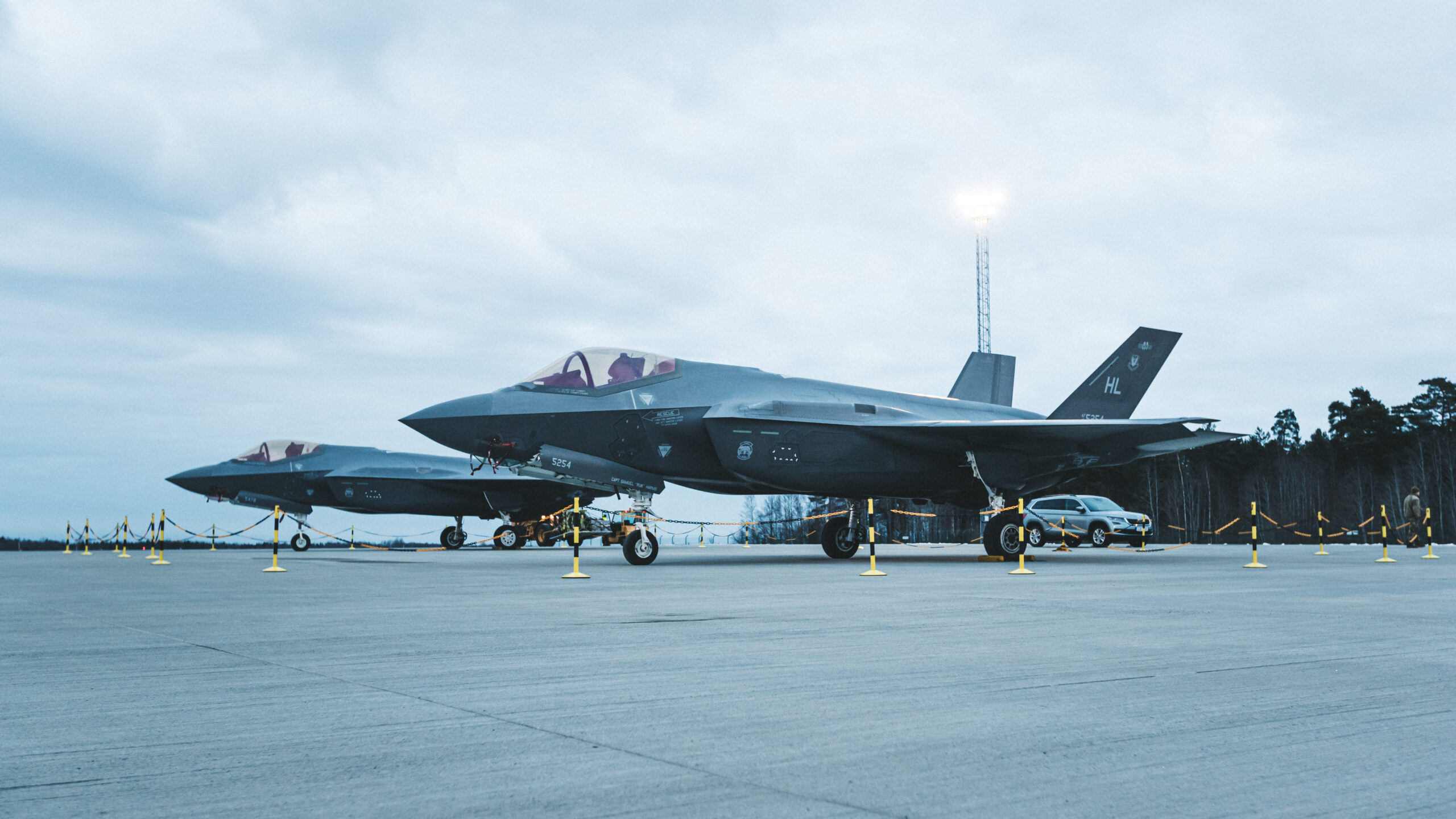
Two U.S. Air Force F-35 Lightning II aircraft assigned to the 34th Fighter Squadron at Hill Air Force Base, Utah, arrive at Ämari AB, Estonia. (US Air Force)
UPDATED 3/3/23 at 3:51 et PM to reflect the investigation into the root cause is still ongoing.
WASHINGTON — F-35 joint strike fighters that have been grounded since December can return to flight after completing a one-time hardware fix that officials now plan to apply to the entire fleet, according to a set of instructions issued by the F-35 Joint Program Office today.
The document, known as a time compliance technical directive (TCTD), was sent to the Air Force, Marines, Navy and all foreign operators of the F-35 with instructions on how to integrate the new hardware so that grounded aircraft can safely resume operations. The JPO says the retrofit can be performed “at the operational level” and will take about four to eight hours to complete.
The fix addresses what the JPO characterizes as a rare vibration in the jet’s engine, an issue that officials identified during the investigation into the crash of an F-35B at Naval Air Station Joint Reserve Base Fort Worth on Dec. 15. The investigation into the crash’s root cause, led by Naval Air Systems Command, is still ongoing.
“The F-35 Joint Program Office has issued a Time Compliance Technical Directive (TCTD) to direct the completion of a retrofit procedure to mitigate for harmonic resonance,” JPO spokesman Russ Goemaere said in a statement.
Goemaere said the TCTD “directs immediate compliance” for aircraft that were grounded due to the harmonic resonance, or vibration, issue and that completion of the retrofit will allow the fighters to resume operations. The TCTD further “recommends the completion of the retrofit procedure within 90 days for all other aircraft,” Goemaere said, though it does not recommend flight restrictions.
Following the December mishap, the Pentagon paused acceptance of new F135 engines and barred an unknown number of fighters from flying. The investigation into the crash later discovered harmonic resonance, a problem that a Pratt & Whitney official said Tuesday is being addressed by integrating new hardware into engines in the field and in production.
Engine deliveries resumed on Feb. 24 after officials determined the source of the Dec. 15 mishap and found a way to mitigate it, though the JPO had not yet given the all-clear to aircraft impacted by the grounding order.
“While only a small number of aircraft were impacted by the harmonic resonance, the plan is to retrofit the entire fleet, because the retrofit is inexpensive, non-intrusive and supports the JPO’s desire to maintain and manage a single configuration across the entire fleet. The JPO will work with the military services and international partners to ensure understanding of the TCTD. The safety of flight crews is the JPO’s primary concern,” Goemaere said.


